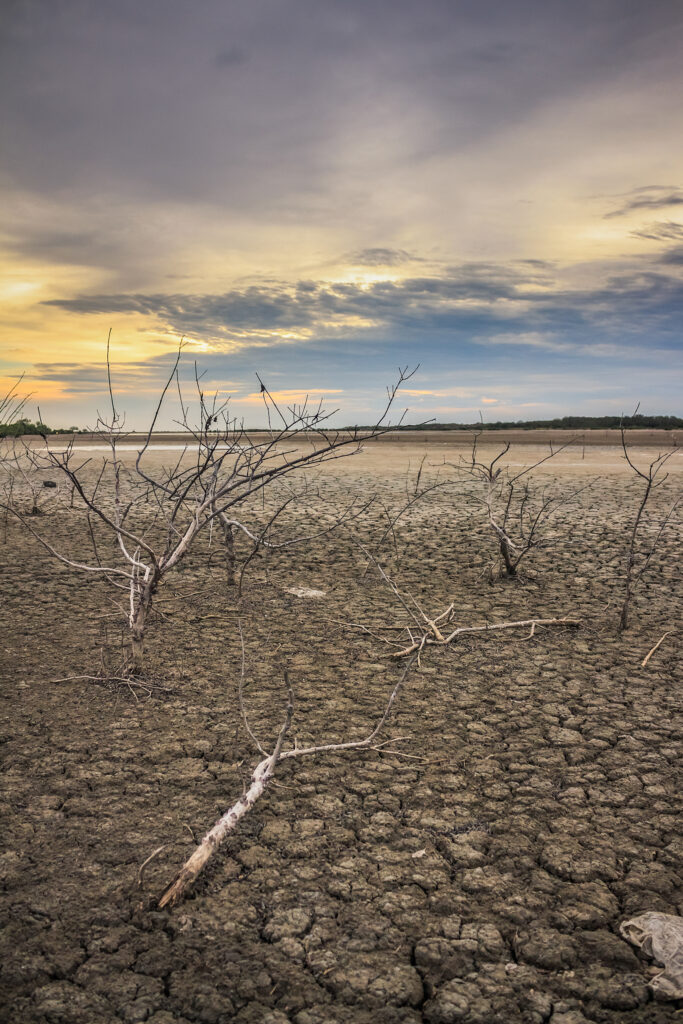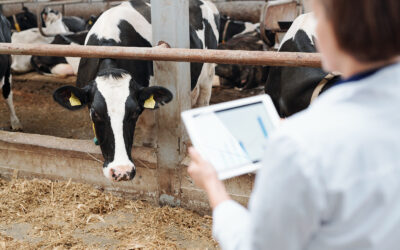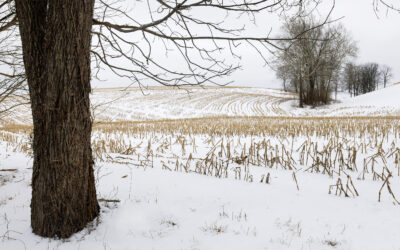Although each season always has its surprises, shifting weather patterns in recent years have become far less predictable and much more extreme. As a result, the agricultural industry is now navigating an unprecedented swath of challenges.
Throughout the United States, sweltering heat waves, raging fires, and winter storms have destroyed crops, wiped out herds, and damaged buildings and machinery. Traditional practices and generations’ worth of knowledge tailored to historical agricultural trends are no longer sufficient to mitigate the risks posed by these unpredictable, devastating weather patterns.
Now, more than ever, the farmers, ranchers, manufacturers, and distributors who make up the agricultural sector need the support of knowledgeable insurance professionals who can adeptly evaluate their individual risk profiles and guide them toward risk mitigation measures and insurance solutions to safeguard their businesses.
Extreme Weather Threatens Crops and Livestock
The weather has always played a significant role in the success or failure of crops, but in recent years, it’s become even more treacherous. As climate change continues to alter weather patterns, the threats to agribusiness productivity have grown more pronounced and complex:

- Drought: Insufficient rainfall can have an immediate impact on production volume by stunting or wiping out an entire crop or threatening a herd’s drinking water. Long term, the consequences can be even greater. Sustained drought creates the perfect conditions for rapidly spreading wildfires. Furthermore, flooding can follow on the heels of drought and fires if the earth is too dry to soak up a heavy rainfall.
- Flooding: Too little water can have severe impacts, but so can too much. Floods, for example, can degrade soil structure, robbing the soil of essential nutrients. Waterlogged fields can cause delays in planting, leading to shorter growing seasons and decreased yields. Floodwaters can also create water-quality issues by carrying contaminants into water sources used for irrigation or for watering livestock.
- Extreme heat: Temperature is an integral factor in crop growth and plays an important role in the germination of plants. Optimal temperature ranges differ by plant and tend to be very precise. Higher than average temperatures (like those the American Southwest has seen this summer) can expose crops to heat stress, which in turn reduces the overall crop yield. Extreme heat can also negatively impact animals, influencing their appetite, which can slow their growth rate and diminish milk production.
- Extreme cold: Extreme cold and winter weather conditions can also take a toll on agribusiness. Unusual dips in temperature mid- or late-spring can thwart or delay production later in the season. Wind and freezing temperatures brought on by prolonged winter storms can be particularly damaging to livestock, making them more susceptible to illnesses and hypothermia. In addition, ice can make pastureland inaccessible, threatening a herd’s food supply.
- Increased pest pressure: Certain weather patterns, such as high humidity, can foster the development and spread of insects, rodents, and other pests. These unwelcome infestations can damage existing crops and reduce crop yields.
Agribusiness Insurance Offers a Safety Net
Adequate insurance plays a pivotal role in an agribusiness’s risk mitigation strategy. Alongside proactive planning and proper disaster-response plans, insurance provides peace of mind by protecting agribusinesses from the threat of shifting weather patterns. This may take different forms, depending on the insured’s specific needs and policy. For example:
- Crop coverage: Agricultural insurance for crops offers protection against yield losses caused by factors stemming from weather patterns. If drought, high humidity, or snow storms devastate the crops, this coverage allows farmers to recover their financial losses, helping them to continue their farming operations.
- Livestock coverage: Livestock insurance provides compensation to farmers in case their animals experience injury or illness. Heat stress, cold stress, and water scarcity can jeopardize a livestock’s health and result in hefty medical bills or livestock loss.
- Property coverage: Storms, fires, and other natural disasters can damage or destroy barns, outbuildings, livestock dwellings, machinery, and other farm-related equipment and infrastructure. Sufficient property coverage ensures businesses can replace or rebuild, with as little downtime as possible.
- Business coverage: With any business, if you’re closed for any reason, you still have bills, mortgages, employee wages, vendor costs, and other recurring expenses. Business interruption insurance can help cover the cost of lost income and extra expenses after a weather-related loss.
As always, it’s important to remember that not all policies are created equal. In addition to general liability policies, agribusinesses may need to explore add-ons and specialty lines of insurance to create the coverage they need. It’s critical for agribusinesses to partner with a knowledgeable insurance professional who can create an insurance plan that avoids coverage gaps.
Leveraging Data for Better Coverage
When it comes to weather, there’s no crystal ball to tell us exactly what’s going to happen, where, and when. But advanced risk modeling and data analytics can give insureds an opportunity to proactively plan and appropriately prepare for the unexpected. By working with brokers and carriers who specialize in agribusiness insurance and have access to these kinds of tools, insureds can get a clearer idea of how likely they are to sustain weather-related losses. Armed with this data, insureds can work alongside their brokers to create tailored coverage that accurately reflects a business’s risks.
Partner with Experts in Agribusiness Insurance
There’s no denying that agricultural insurance is a crucial component of a resilient and thriving agricultural sector. Protecting farmers against various risks and providing financial stability enables them to adapt to changing conditions and invest in the future of farming. As the agricultural landscape evolves, insurance will continue to play a pivotal role in sustaining food production and supporting the livelihood of thousands of commercial agribusiness in the U.S.
MiniCo provides a robust agribusiness insurance program that is specifically designed for the agricultural sector. With nearly 50 years of experience as a program administrator, we are committed to providing unparalleled service in the areas of underwriting, claims, and specialized insurance solutions. If you’re looking to place an Agribusiness risk, contact MiniCo’s dedicated program underwriters here to learn more.




